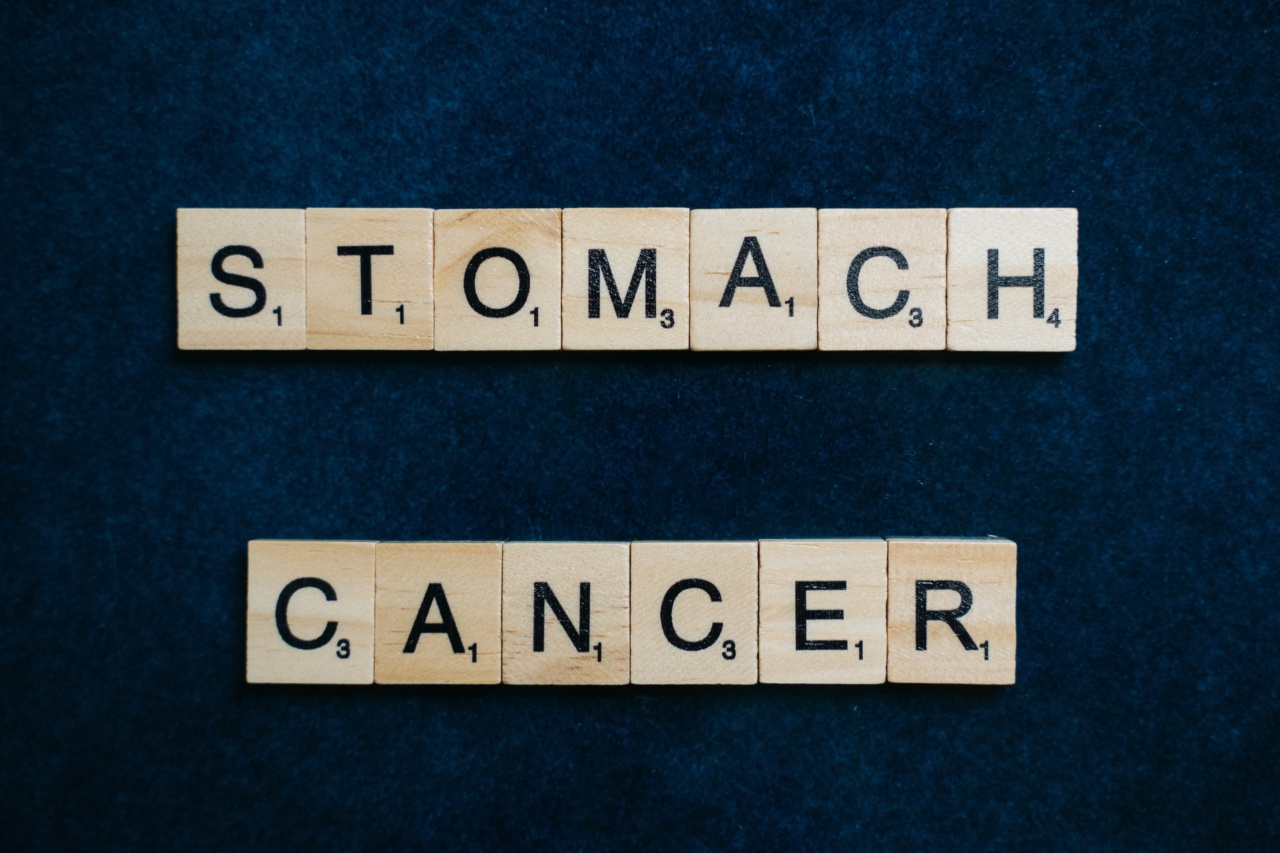Stomach cancer, also known as gastric cancer, is a malignant disease that starts in the cells lining the stomach. It is the fifth most common cancer worldwide and accounts for a significant number of cancer-related deaths.
Stomach cancer often goes undetected until it reaches advanced stages, making it crucial to understand the risk factors, early signs, and preventive measures. In this article, we will delve into the lurking risk of stomach cancer and explore ways to protect yourself from this silent killer.
Understanding Stomach Cancer
Stomach cancer develops when the cells in the lining of the stomach undergo genetic mutations, leading to the uncontrolled growth and division of abnormal cells.
Over time, these cancerous cells form a tumor that can invade nearby tissues and spread to other parts of the body.
Common Risk Factors
While the exact cause of stomach cancer remains unknown, certain factors increase the risk of developing the disease:.
1. Helicobacter pylori infection
H. pylori is a bacterium that infects the stomach lining, causing chronic inflammation. Prolonged infection with H. pylori increases the risk of developing stomach cancer.
2. Age and gender
Stomach cancer primarily affects older individuals, with the average age at diagnosis being 68. Men are more prone to developing stomach cancer compared to women.
3. Family history
If you have a first-degree relative (parent or sibling) who has had stomach cancer, your risk of developing the disease is higher.
4. Smoking and alcohol consumption
Smoking tobacco and regularly consuming alcohol have been linked to an increased risk of stomach cancer. Quitting smoking and moderating alcohol consumption can significantly reduce this risk.
5. Diet
A diet high in salty, smoked, or pickled foods, as well as a lack of fresh fruits and vegetables, increases the risk of stomach cancer. Consuming a healthy, balanced diet can help lower this risk.
6. Previous stomach surgeries
Individuals who have undergone certain stomach surgeries, such as partial gastrectomy, have a higher likelihood of developing stomach cancer.
7. Pernicious anemia
People with pernicious anemia, a condition in which the body cannot absorb enough vitamin B12, have an increased risk of stomach cancer.
8. Obesity
Being overweight or obese raises the risk of various types of cancer, including stomach cancer.
9. Type A blood
Some studies suggest that individuals with blood type A may be more susceptible to stomach cancer.
10. Occupational exposure
Exposure to certain chemicals, such as asbestos and coal dust, in certain occupational settings can increase the risk of stomach cancer.
Early Signs and Symptoms
In the early stages, stomach cancer rarely causes noticeable symptoms. However, as the disease progresses, the following signs may appear:.
1. Persistent indigestion or heartburn
If you frequently experience indigestion or heartburn that doesn’t go away, it’s essential to get it checked by a medical professional.
2. Unexplained weight loss
Sudden and unexplained weight loss can be a warning sign of various underlying health conditions, including stomach cancer.
3. Abdominal pain or discomfort
Chronic or recurrent abdominal pain, particularly in the upper abdomen, may indicate an issue with the stomach, including the possibility of stomach cancer.
4. Nausea and vomiting
Feeling nauseous or vomiting, especially after meals, is not a normal occurrence and should be evaluated by a healthcare provider.
5. Swelling or fluid buildup in the abdomen
A sudden swelling or fluid accumulation in the abdomen can be a sign of advanced stomach cancer.
6. Fatigue and weakness
Excessive tiredness, weakness, and a general decline in energy levels are common symptoms experienced by stomach cancer patients.
7. Blood in the stool or vomit
If you notice blood in your stool or vomit, it is crucial to seek medical attention immediately as it may indicate bleeding within the digestive tract.
Preventive Measures
Although there’s no foolproof way to prevent stomach cancer, certain lifestyle changes and interventions can significantly reduce the risk:.
1. Get tested for H. pylori
If you experience persistent indigestion or have other risk factors for stomach cancer, your doctor may recommend a test for H. pylori infection. Treating this infection can help reduce the risk of developing stomach cancer.
2. Quit smoking and moderate alcohol consumption
Both smoking and excessive alcohol intake are well-established risk factors for stomach cancer. Quitting smoking altogether and drinking alcohol in moderation can lower your chances of developing this disease.
3. Maintain a healthy diet
Eating a well-balanced diet that includes plenty of fruits and vegetables can help reduce the risk of stomach cancer. Limiting the intake of processed and salted foods is advisable.
4. Exercise regularly
Engaging in regular physical activity and maintaining a healthy weight not only promotes overall well-being but also helps lower the risk of various cancers, including stomach cancer.
5. Be aware of occupational hazards
If you work in an occupation that exposes you to harmful substances like asbestos or coal dust, it’s crucial to follow safety protocols and minimize exposure to reduce your risk of developing stomach cancer.
6. Consider genetic counseling
If you have a family history of stomach cancer or certain inherited genetic conditions, such as hereditary diffuse gastric cancer syndrome, seeking genetic counseling can help determine your specific risk factors and guide preventive measures.
7. Stay informed
Regularly consult with healthcare professionals and stay updated on the latest research and guidelines for stomach cancer prevention. Early detection through screenings can greatly improve the chances of successful treatment.
In Conclusion
Stomach cancer is a significant health concern with potentially severe consequences.
By understanding the risk factors, recognizing the early signs, and adopting preventive measures, you can minimize your chances of falling victim to this lurking disease. Remember, knowledge and proactive action are key to protecting yourself and your loved ones from the hidden risk of stomach cancer.




























